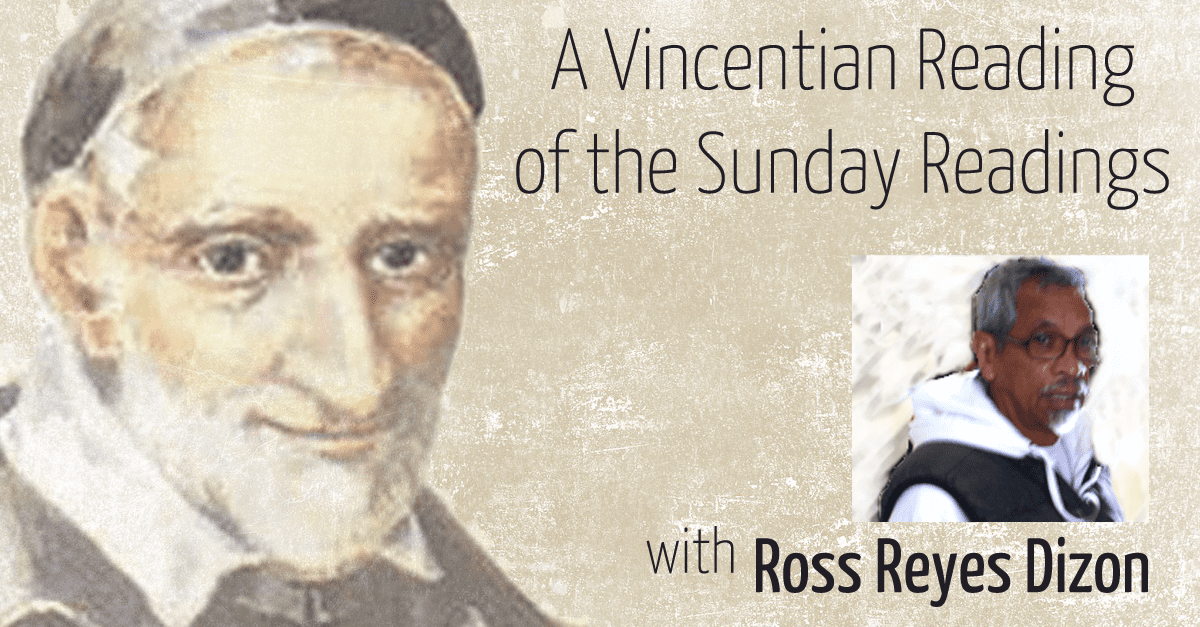Curses that Turn Out to Be Blessings
Jesus became a curse to free us from curses and fill us with blessings. He became sinner and poor to make us just and rich.
Those who are to catch men and women have much to learn still. And today the one who has called them teaches them about curses and blessings.
The teaching is crucial, yet strange. For Jesus calls lucky those who are unlucky, and unlucky those who are lucky.
Yes, he says that blessings are and will be of the poor and hungry, of those who suffer. Curses, on the other hand, are and will be of the wealthy who do not suffer as others (Ps 73, 4-5). But in spite of this psalm, the teaching still raises eyebrows; the Teacher turns all upside down. We would not believe it, should he not embody it.
In the end, it is he that makes us believe his teaching. Not only does he say it; he also does it. He is a poor man who comes from a lowly family. And he is one of those folks of Nazareth who cannot even earn a coin of small value.
And when he goes from place to place to preach, he has nowhere to rest his head (Lk 9, 58). He brings along few things as he goes around towns and villages (Lk 9, 1-6). For God, whom he makes known, is a Father who provides for the needs of his children. It is enough for them to ask so as to receive. To seek so as to find, and to knock so that one may open to them.
Curses and blessings
Jesus gives up, yes, all self-sufficiency and admits that he is poor before God, in whom lies all his hope. Jesus “does not trust in humans” (see also Jn 2, 24). He is the one whose bad luck turns into good luck.
He bears curses for he seeks God’s kingdom and his justice. For he goes beyond the usual justice and clashes with the powers that are in place. For he cries out for justice for the poor and decries all greed.
To cry out the Good News to the poor means to decry also the wealthy. Those who have their fill and live it up. Those who are the envy of all (Ps 73, 10).
And the word “now” is in the blessings and the curses. That is so since the one who announces and denounces is not so much a lawgiver as a prophet. The one who gives laws for today and tomorrow adds “in spirit.”
The prophet, on the other hand, addresses the now and does not mince his words. Before him one falls or rises (Lk 2, 34). In effect, he says, “Enough of oppression and not caring for the poor!” Hence, there is no mistaking him for the one who gives out anesthetics.
In fact, Jesus cares for those in need. That is why, finally, he dies, he gives his body up and sheds his blood. To root out our sins, and all the poverty and evils sins cause.
And to be Christians means to follow Christ in curses and blessings. It is worth doing; it leads us to the eternal joy and the great reward in heaven.
Lord Jesus, grant that we be your disciples. Make your mercy change us when we meet you, so that we may be like Zacchaeus and St. Matthew. Let us welcome curses, because of you, and enjoy your blessings. We will thus witness to you, the poorest of the poor who takes care of their needs (SV.EN XII:77).
13 February 2022
6th Sunday in O.T. (C)
Jer 17, 5-8; 1 Cor 15, 12. 16-20; Lk 6, 17. 20-26







0 Comments